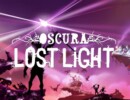
Developer: Chocolate Liberation Front
Publisher: Surprise Attack Games
Platform: Mac, PC, Linux
Tested on: PC
Oscura: Lost Light – Review
Half a year ago, mobile gamers were introduced to the Driftlands, a world which seamlessly combines the wonders of nature and technology. Seamlessly, yes, as every would-be seam is covered by a foreboding darkness. In Oscura: Second Shadow, this was all due to the destruction of the Aurora Stone, which was shattered by a mysterious shadow monster. As players eased themselves into the platforming shoes of the titular Oscura, keeper of the world saving Lighthouse, they gradually collected each fragment of the stone in order to restore it to its former glory… And, of course, defeat the creature that started it all.
Now, however, all of this seems to have been for naught as Oscura: Lost Light has landed onto Steam and the Aurora Stone is fragmented once again. Containing a flimsy excuse for a story and – ironically – less responsive controls than its mobile predecessor, this game will probably fade into the shadows sooner than we’d like.
Story
Whereas Second Shadow at the very least had some sense of adversarial tensions to keep players moving forward, Lost Light mistakenly tries to put a spin on Oscura’s formula by making the main character’s curiosity both the hero and villain of the piece.
Being a typically curious young boy, he decides to forego the ancient rules and touch the Aurora Stone, which has always cast its light on the world to keep the dangers of darkness at bay. In doing so, he actively causes a mystical shattering that lunges pieces of the holy rock towards the outskirts of the Driftlands, which are neigh impenetrable without the guidance of the very object you seek to repair.
Luckily, being a lightkeeper has its perks. Oscura possesses a flaming hand which can absorb up to two of the four magical powers available in this world: Destruction, Construction, Gravity and Time. Their applications will be dealt with below, in the gameplay section of this review, but until then it should suffice to say that they hold no impact whatsoever on the paperthin story.
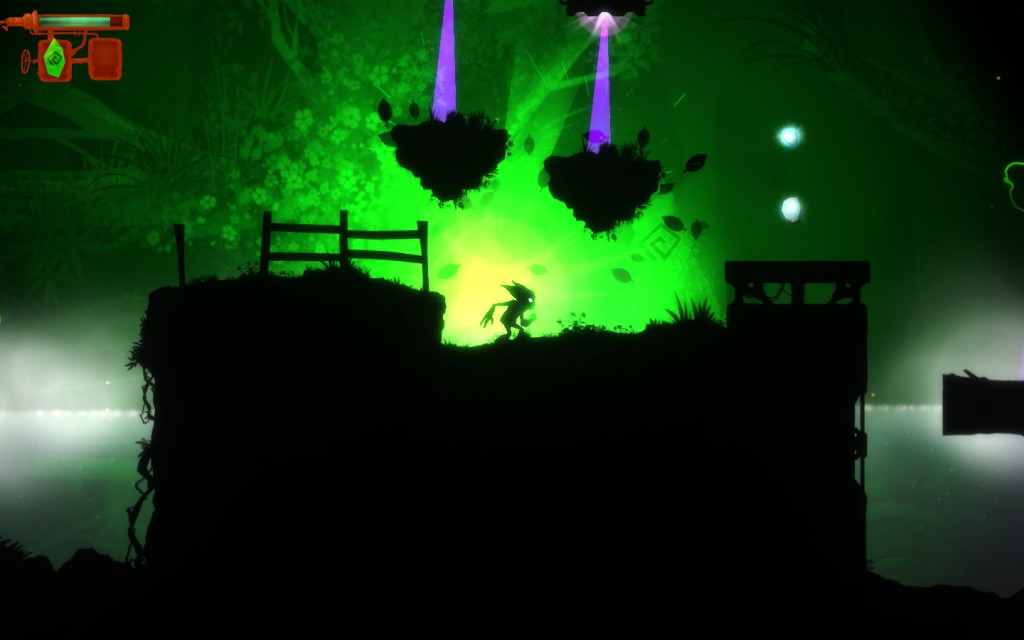
Graphics
The first time Oscura: Lost Light is booted up, it is very hard not to think of the splendid platformer LIMBO (2010). Every world is made up of a purely black foreground, often rendering it unclear what exactly lies before your feet. Death surrounds you at all times, and it is impossible to engage in any form of combat.
This type of visual style has been copied quite a lot in the past five years. As its very nature is one that basks in the glory of simplicity, there isn’t really that much room for innovation. By taking on this particular style, Oscura has therefore been doomed to a life within the grey masses from the moment its start menu pops up on the screen.
Sound
If Lost Light’s visuals take their cues from once-original, now clichéd ideas, its sound design takes this approach even further. As the few bits of monologue are only shown as written text, players are only hearing background music and the necessary run-and-jump sounds. Although the music does deliver a sense of omnipresent danger, it isn’t Soundtrack of the Year material either.
Gameplay
So far, this review hasn’t cast Oscura: Lost Light in a particularly favourable light. As with any true platform game, however, this adventure should mainly be discussed in terms of its level design and its game mechanics.
The levels have actually been designed pretty well, starting off easy enough for anyone to learn the ropes and steadily ramping up the difficulty. Difficulty-wise, you shouldn’t expect a new Super Meat Boy, but speedrunning through an entire level unscathed does present a firm enough challenge to stay interesting for a while. It may be argued that the well-made designs are offset by a rather small set of levels, topping off at twenty-one (not counting the final boss level). However, the game does try and keep its players hooked with extra challenges, such as completing each level without dying too much or within a certain time.
Keeping the tried-and-true platforming experience interesting are the aforementioned magic powers Oscura can procure with his flaming hand. Destruction allows you to break certain walls and floors, whereas Construction makes structures appear out of thin air for a short while. Gravity lets you fall towards the ceiling and lastly, Time slows everything – except you – down to a crawl. All of these are very straightforward and don’t exactly reinvent the wheel, but they do succeed in bringing a sense of variety in otherwise unvaried shadow world.
Its most interesting aspect, however, is painfully underused: Oscura’s hand can only hold two powers at once. Each level requires you to find the required powers before you can actually use them and sometimes, you will find a third power that automatically causes you to drop the first one. This should lead to a heart wrenching choice, opening up some pathways while closing off others, but the level design is too linear for that. Instead, your path has already been decided for you, forcing you to take each power as you come across it and nullifying the effect of being limited to only two powers.
Conclusion
Whereas Oscura: Lost Light definitely could have been a very interesting, if not wholly original title, its experience is undermined by underused game mechanics and a somewhat lacklustre sound design. That its story is uninteresting even for a platformer can easily be excused and the game can definitely deliver on a fun game night, there is really no reason to keep coming back to it after one playthrough. Its controls are a bit too wonky at times, the flaming hand powers never reach their true potential and visually, it’s all been done before, ensuring that this title will be firmly ensconced into the shadows.

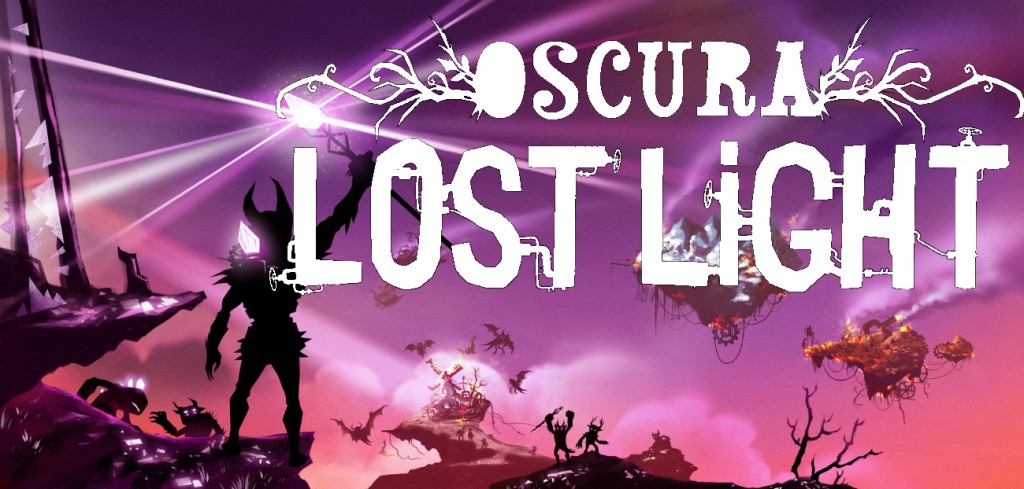

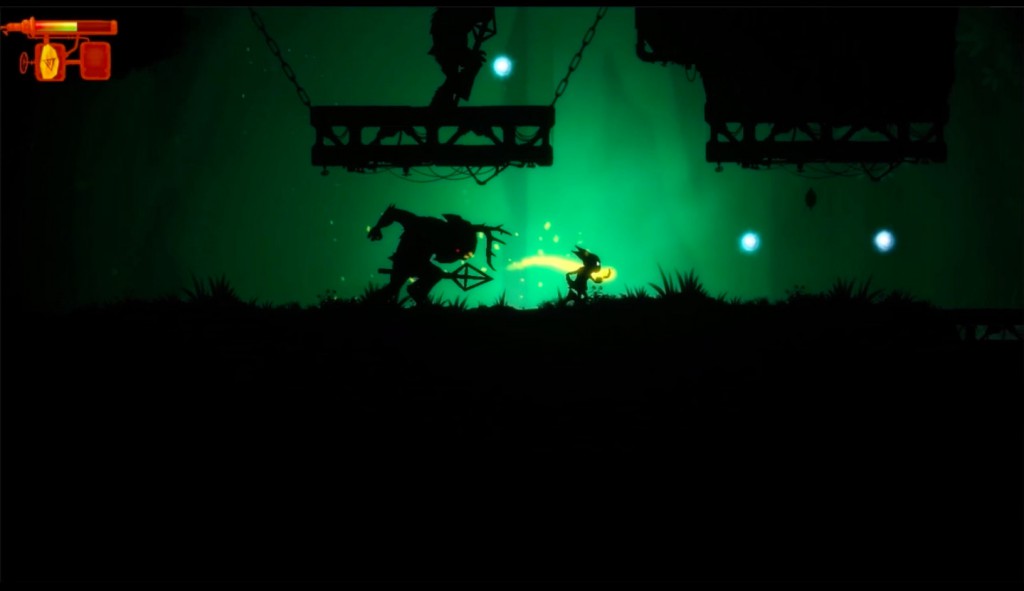
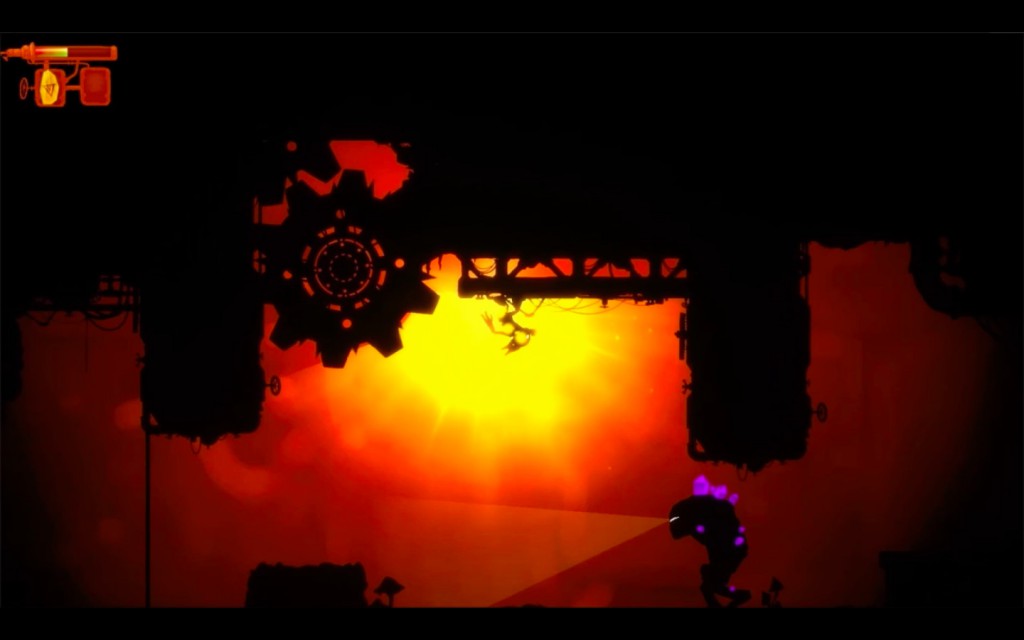




No Comments